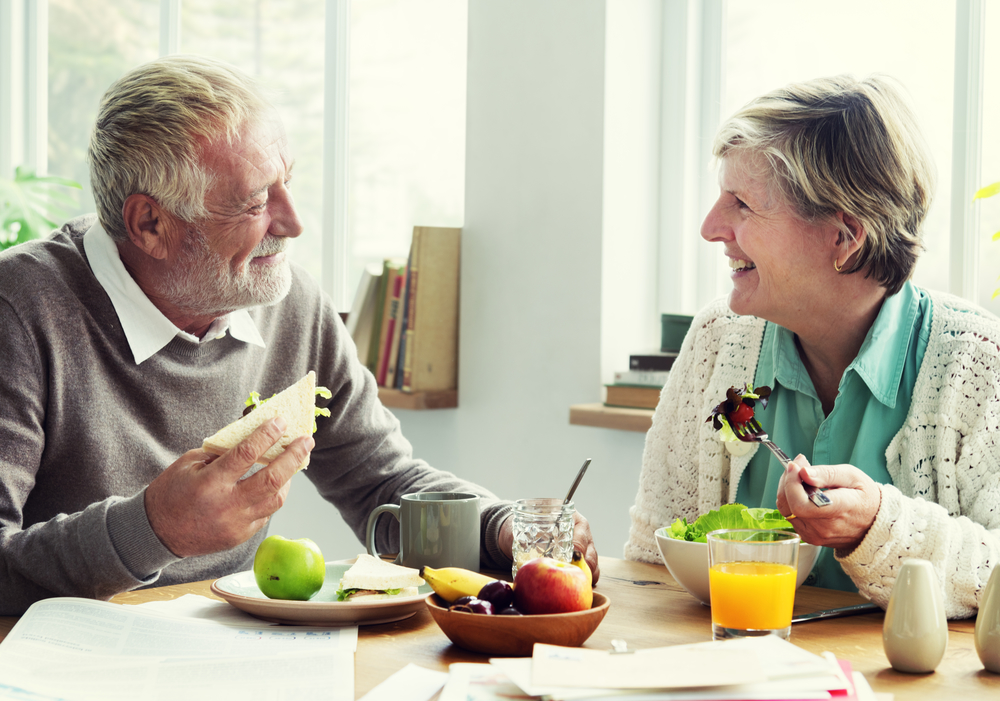Eating right is one of the main things that can help you maintain a healthy body. However, as people get older and have a harder time getting around physically and mentally, their personal nutrition often takes a hit convenience becomes the priority. Despite this, it’s now more than ever that a person needs to be focusing on proper nutrition in order to stay healthy and fight off illness.
So if you’re caring for an elderly person or are having trouble getting the proper nutrition for yourself as a senior citizen, here are three nutrition tips for the elderly.
Embrace Variety
While we’ve all heard that variety is the spice of life, this is truly something that everyone should embrace when it comes to the food that they eat.
According to the National Council of Aging, eating a wide variety of foods will help ensure that you’re getting all the vitamins and minerals that your body needs from your food. Ideally, your plate should look more like a vibrant rainbow than something more monotone. To help you accomplish this, try to eat lean proteins, fruits and veggies, whole grains, and low-fat dairy for each meal you eat during the day. By doing this, you’ll have a better chance of getting all of the calcium and other vitamins and minerals that are so important.
Get Enough Fiber
One thing that you want to be sure you’re getting enough of as you age is fiber. But while most people think about fiber as being the thing that keeps you regular, it does so much more than that, especially for the elderly.
According to HelpGuide.org, eating foods that are high in fiber can help lower your risk of things like diabetes, stroke, and heart disease. In addition to this, fiber-rich foods can also help you to lose weight and improve the look of your skin. Because most people only get about half of their recommended daily amount of fiber, this is something that the elderly should really focus on with their nutrition.
Keep Yourself Hydrated
Dr. Natalie Butler, a contributor to Healthline.com, shares that as people age, they often are less likely to notice when they become thirsty. Because of this, a large portion of the elderly are often dehydrated on a regular basis.
To combat this, seniors should try to drink at least eight large glasses of water each day. To make this easier, consider drinking a full glass of water at specific times each day. By doing this, drinking an adequate amount of water will quickly become a habit for you, helping you to avoid dehydration and remain healthy. There are a variety of water dispensers to fit your home that you can purchase to make sure that you and your family have easy access to cold or hot water and are only consuming potable water.
If you’re worried about maintaining proper nutrition as you or your loved one ages, consider using the tips mentioned above to help you learn about proper nutrition for the elderly.

Leave a Reply